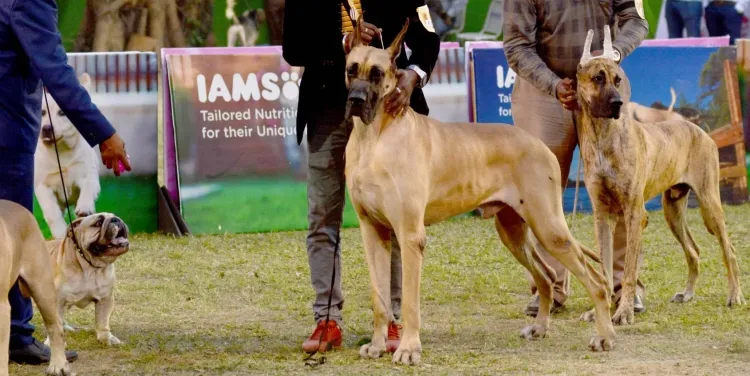Is it now mandatory for GCC pet dog owners to implant microchips?

Synopsis
Key Takeaways
- Mandatory microchip implantation for pet dogs in Chennai.
- Penalties of ₹3,000 for non-compliance.
- New regulations effective from next month.
- Proof of microchip and anti-rabies vaccination required for pet licensing.
- New ABC centers for sterilization and vaccination to be established.
Chennai, Sep 4 (NationPress) In an effort to enhance pet ownership regulations and reduce the increasing frequency of dog-bite incidents, the Greater Chennai Corporation (GCC) has mandated that all pet dog owners must have microchips implanted in their pets. Those who do not adhere to this new regulation will incur a fine of ₹3,000, according to officials.
The legislation will take effect next month.
As per a resolution adopted by the civic body, obtaining a pet license will now necessitate proof of microchip implantation along with evidence of anti-rabies vaccination (ARV).
Additionally, pet owners are required to input their personal and pet information into a new software system and mobile application that the GCC intends to develop through a short-term e-tender process.
Moreover, dogs will be required to wear muzzles when taken outside, as stated by the Corporation.
This decision follows a spike in reports of abandoned pet dogs.
The Tamil Nadu Animal Welfare Board has noted numerous such incidents in recent months. However, the civic body highlighted that there is currently a lack of comprehensive data regarding the number of pet animals in the city.
In contrast, a survey conducted last year identified as many as 1,80,157 stray dogs within the GCC jurisdiction, underscoring the necessity for enhanced oversight of pet ownership.
The civic body has additionally proposed the establishment of new Animal Birth Control (ABC) centers in the Madhavaram, Ambattur, Anna Nagar, and Valasaravakkam zones at a projected cost of ₹7.22 crore. These centers will be crucial for sterilization and vaccination efforts while also providing basic veterinary care.
During a council meeting, S. Bharathi, a councillor from ward 152, urged the Mayor and Commissioner to set up pet clinics in every ward to offer first-aid services for dogs and cats.
He further recommended that the Corporation create temporary shelters for abandoned dogs, similar to those established for stray cattle.
In response, the Mayor assured that the new ABC centers would be equipped to provide such care and that pet welfare would be prioritized under the broadened animal management program.
With the implementation of these new regulations, the GCC aims to foster greater accountability among pet owners while addressing issues related to pet abandonment and stray dogs in Chennai.







